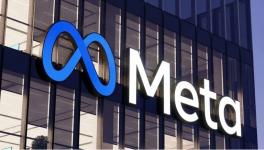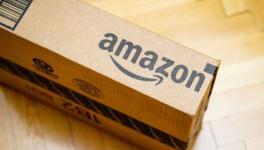Free Basics: Neither Free Nor Basic
Newsclick interviewed Prabir Purkayastha, Chairperson of the Society for Knowledge Commons, on Facebook’s massive Free Basics campaign, and the protests that have followed it. He said that the gatekeeping of content done by service providers is against the fundamental principle of net neutrality. Restricting the content and making a service free of cost is not the appropriate way to reach people who are not yet connected to the Internet. It discriminates against the poor, in terms of their accessibility to information on a wider level and knowledge of the Internet. This way of operation will also lead to monopolization of Internet services. Purkayastha opined that the Internet is a public utility and it should be kept under the public domain. Hence, net neutrality is to be safeguarded at any cost.
Rough Transcript
Rishab Bailey (RB): Hello and welcome to Newsclick. Over the last few weeks facebook is running a mass ad campaign seeking it's support for it's free basic platform. Free basics which has come in for severe criticism as an earlier avtar as in internet.org connects to a limited array of contents on line for free. The platform is come under severe criticism for violating the principles of neutrality. Now facebook defends it's platform on the grounds it is providing easy an cheap access to the underpriviledged. The issue has taken on a great importance now TRAI consultation of differential pricing on data. To discuss the issue, we are joined by Prabir Purkayastha Chairperson of the Society for Knowledge Commons. Thanks for joining us Prabir. Now, why projects like free basics are bad for innovation. That seems to be one of the critiques of the platform. Is there any evidence to show that internet economy could be actually be harmed by such a project or platforms.
Prabir Purkayastha (PP): Well, it is interesting. If a similar kind of platform existed earlier, and that had become in some sense dominant. Players like facebook could not have arisen at all. Essentially, the whole issue comes from whether you could have gate keepers for the internet and should the Telcos be the gatekeepers for the internet. So essentially, this plan, the free basic plan that has been offered is being offered to the Reliance. Reliance communication is a telecom player and essentially, Reliance says you connect to me and ask free basics, I will give to you. And free basics therefore, becomes a platform which some people may choose instead of going to the full blown internet. Now, if you look at the it has about a billion websites out of which something like probably 300 million, 400 million are active. These websites could also be applications. So there could be apps you download. They offers services and content and the power of the internet is there are so many people offering content and services. This is a distinction between what would be a cable TV as a platform and what the internet is. If you give people only a limited amount of website, this is the free internet. People may stay for ever and therefore, what would you deny them is an opportunity to connect to all the other content that exist. Vice versa, all those people who would like to connect to everybody else on the interent then cannot connect you because Reliance in this case would become gatekeeper and would say no you can not connect to my subscriber because they have only asked for free basic. That's the platform only they can access.
RB: You just said that facebook and Reliance has entered into this agreement but facebook has gone to quiet a lot of trouble to point out how it is ready to enter into similar agreements with various different telecom providers so that users are not restricted to only choice Reliance. Does that take care of your concern.
PP: I think, the essential concerns is telecoms acting as gatekeeper to the internet. Internet means that if I connect to the internet I can connect to anybody vice versa anybody wants to give application content to me he can connect to me by virtue of this differential principle that is being introduced, you can get some consumers but not the rest. What facebook would be doing with Reliance or with any of the telecoms vendors for that matter is that telecom vendors will become actually gatekeepers. Now, if you exempt this principle for so called good, tomorrow the same principle to say, some sides can connect if they pay me money and those sides who don't pay me money don't connect. The principle of it is that gate-keeping for telcoms then gets established in the guise of internet services for a few, basics for a few and that in the long term is the problem because telecoms firms should only act for allowing a certain set of services in this case data services and should not be looking into what is inside those data packets which party it comes from which is the website and so on. This principle if you allow the telecoms to do then it can get into all kinds of differential predatory pricing, differential treatment for all websites it will then might introduce. I think here the issue is really the principle. If you want to give free internet, sure, there should be other ways of doing it. But this should not be converted to giving in access to only hundred websites out of at the moment seem one billion websites.
PP: So interesting part of it is that in India, the mobile space has been increasing at a very high rate. We have saturated a voice space but data has started catching up. Last one year we have 60 million odd subscribers who have connected to mobile internet. There is no evidence to show people are slowing up because of internet data services are really too expensive. I think the argument would then be if that is so, the argument should then be that we should then reduce the price of data services and that would take care of the problem. So the argument would then be to provide what would be called we used to call housing debate, weaker houses for weaker sections that gives them a poorer internet because they are poorer people. Means the poor people should not get full access because they do not have the money to pay for the full internet, then we should really look for other ways for doing that providing say 20 MB data free for the service and only after that you pay. Secondly, a lot of the things they are talking about, education, health you need in peoples languages you need doctors, you need teachers. Internet is not a substitute for them. So the argument that they are providing some public good itself is wrong. Secondly, it is the whole issue which came up right in the beginning of the consumer protection that should people give you free bees. Is that a good model for market. And it was argued that those kind of things which need to predatory models which frees out a certain set of competitors by virtue of providing something free for a limited period, after you got that competitors out, then you of course increase your prices. It is exactly the kind of problems which we likely to get here. That this is to hook people onto facebook and hope that they stay there for ever. Third of course is you know, the data is the key issue in internet economy so what they are getting there by virtue of this is okay, I give me your free services, you give me your data. That becomes a model, the poors data can be captured by these so called free services for ever.
RB: So what are other countries doing with respect to such platforms, I mean are there any actual alternative models which can be used to provide subsidized access but do not breach the net neutrality or do not effect market adversely free basics does?
PP: I think there is something which we have done in telecom which is called universal service obligation that you had the necessity. Any telecom provider had the necessity to telecom services to the people in a way they could access. It could be their homes if not the centres and go and make calls. Universal service obligation perhaps be needed to extend to internet as well. So you should look at the Universal Obligation fund which is 40000 crore but with which we are building fibre optic broad band network. And that's what everybody will use. All the service providers are going to use this peoples money, the universal service provider fund. So I think it is quite apt that we then ask this service providers to give some amount of data free and that could be then be the basis on which we could expand on Universal Service Obligation provisions for the interent. Other way have also been to experiment on different sets of people, use showing some ads to get data time and so on. But I think in principle the most important part is really looking at internet today as a part of universal service obligation and since that fund is that has been used to provide the internet backbone then some data should be made free because it is people's money. In some sense, that is the money...
RB: Re-compensate telecom companies out of the US have funds in order to provide subsidized accesses. That's what you would…
PP: I am saying, Telecom providers are going to use the backbones in lieu of that they should give some data free and that should be regulated so that if they do so, otherwise, why are you offering this backbone to them to use. That's really a subsidy people of India is giving to all the telecom providers in this country.
RB: Now all this entire debate regarding facebook and free basics seems to have restarted after Narendra Modi's visit to Silicon valley recently. Do you think it's fair to actually try and delegate these responsibilities of that access that you have just mentioned to the private sector?. Or do you think it is a useful model in the public and private should combine towards that.
PP:Well, I don't think this is really a public private partnership model because here what we are doing is facebook is offereing services for facebook. Now, that's not a public purpose. That's really a private purpose. I also think that when such services are taking place at the country and the net neutrality is a key debate for the internet and let's be very clear. Internet is the future for the knowledge economy. It's artery of commerce, it's access to various services it's access to knowledge and so on. So whoever really controls internet, controls our future in some sense. Here the state has the responsibility. The state can not run away by handling this responsibilities to big internet global monopolies. I also think that given there is huge policy debate on issues like net neutrality the Prime Minister of the country has to be more circumspect and not go visit googles offices and facebooks offices who are doing various things in the country which have an impact in terms of policy and then the policy making people who are there and then will take into account the optics that here is a Prime Minister doing an open house with Mark Zuckerberg, here is Pichai getting access to the Prime Minister and then lot of these policies could get skewed because it has impacted the policy matters.
RB: Now in that context, many people have also pointed out particularly that how facebooks full page advertisements were running across newspapers last couple of weeks have been misleading because it talk about providing a free basic internet. Do you agree with this? Do you think any of the action can be taken against facebook. Do you think TRAI will actually take this into consideration.
PP:I don't know whether it falls under TRAI's jurisdiction or not but certainly under what would be called consumers protection act. Misleading the public is violation of the consumer protection act.
RB: So you do believe they are cheating the public
PP: Of course, when you call something as free basic internet and call the service you offer which has nothing to do with the internet in this sense of being a whole of internet and you call this free basics then you are confusing the people about a free basic internet with your free basics as a service. Facebook has used this to interchangeably. In it's ads, in it's campaigns, it has used free basic internet and then said therefore support free basics.
RB: It is an interesting point something which you have just touched upon is the fact that you don't have any communication tools or chat tools and or search engines for examples on free basics and one would regard those the most sort of basic utilities on the internet today. Now, coming to a more generic issue which is some people look at this entire issue of net neutrality as whether essentially this is a debate, whether you treat this internet as a public utility. Is it time given the sort of benefits internet offers in the 21st century that you would treat it much as a water and electricity and therefore, regulated as such. Of course, the other side of the coin is you will have this leads to the possibility that excessive government intervention in what is largely a civilian space if you would like to put it that or space free of too much of government intervention. What are your thoughts on this?
PP: You know, the two aspects of the public utility. One is if a certain kinds of functions becomes monopolies, then, they should be treated as public utilties because monopolies power otherwise would distort completely the relation between the one which is providing the service and one who is availing the service. It is completely unequal relationship. I think, interent monopolies today have become dominant powers on the internet. I think about 10 of them really have 75% of clicks, they have 75% of the global commerce and so on. So they really are at the moment monopolies vis a vis you and me who are the consumers. Now, the question of regulations therefore is important. The problem with regulation which is what always been there is that if you regulate the monopoly, there is a push back there. Monoploy does not want to be regulated. In this case, the problem becomes even more because this monopoly is not a local monopoly, it is not a national monopoly, it is global monopoly. As of they, we really have no instrument to control global monopolies of this kind. So the answer is yes, it should be treated as a public utility but we need therfore to look at what kind of internet government we want by which you can regulate what today essential are global monopolies.
RB: Well that's all the time we have today to discuss this issue. I will encourage all of you to put in your opinions on comments on the TRAI consultations time period for which have been extended till 27th of January. Do keep watching Newsclick.
DISCLAIMER: Please note that transcripts for Newsclick are typed from a recording of the program. Newsclick cannot guarantee their complete accuracy.
Get the latest reports & analysis with people's perspective on Protests, movements & deep analytical videos, discussions of the current affairs in your Telegram app. Subscribe to NewsClick's Telegram channel & get Real-Time updates on stories, as they get published on our website.
























